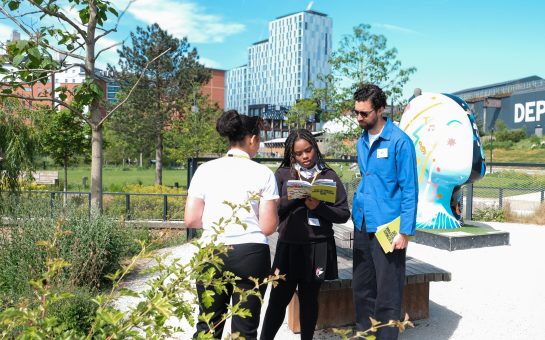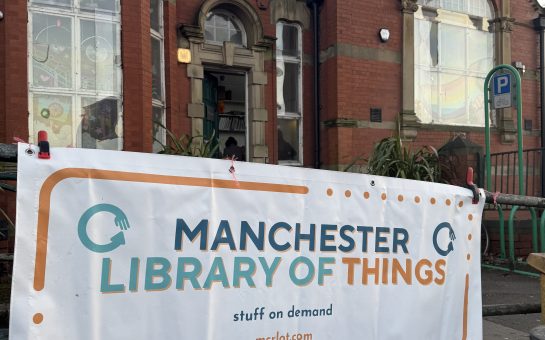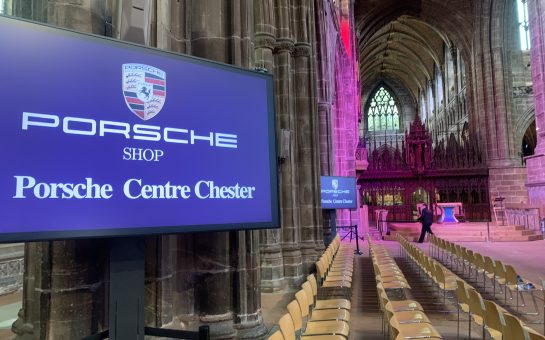Stitched-up is a non-for-profit organisation set up to help educate the people of Manchester about garment making and repair as well as wider issues surrounding the fashion industry. It was founded ten years ago by women looking to change the fashion industry and runs workshops teaching the people of Manchester everything from learning to sew, from making a garment from scratch. Stitched-up’s HQ is in Chorlton but also runs a pop-up in Stretford. MM spoke to Stitched-up’s Bryony Moore about fast-fashion, human rights and the future of fashion.
Stitched-up was founded in 2011 – What inspired you to start it up?
There were six co-founders of stitched up, and all of us were from a creative background, so either arts or fashion students, and all of us really loved clothes and style and really loved the way that changing your outfit can change how you feel and showcase your individuality. We love experimenting with clothes but we also were really worried about the impacts of the fashion industry. We were really concerned about lots of those environmental issues and the impact on workers but also let down the people who buy it as well, it kind of encourages you to buy more clothes than you need, spend more money than you would, and also just wear trends which wouldn’t necessarily suit you or wear colours that are just not necessarily your favourite colours. We were really interested in the idea of creative action and how making your own clothes, or upcycling them or repairing them not only means that you keep them in use for longer, but it also means that it also has really big benefits for your mental health. We wanted to create a space where people could go and learn new skills. A really big part of the idea of Stitched-Up was this idea of bringing people together in groups to learn things together, because I think that’s a really important part of building a community and helping people feel like they’re part of a movement.
Over the past 10 years, which parts of the fashion industry have improved, and which have regressed?
In terms of workers’ rights issues we’ve made no progress really whatsoever. There’s such a small proportion of people in the fashion industry that actually get paid a living wage, I think it’s something like 2% of workers. The fashion industry will specifically target countries where labour law protections are weak, and that model has not changed at all, it remains the same. Things that have been good is that gradually, over the years, there’s been an increase of awareness in the general public around the issues, and that, in turn, has put pressure on companies. Every company is aware that sustainability is a major point of concern for them, which is a good thing. But for most of them, their actions don’t quite match up to what’s required, most of what they’re doing is about paying lip service to the idea; using certain terms or releasing sustainable micro-collections, it’s not about actually tackling supply chain-wide issues, like living wages, like the use of fossil fuels to make polyester garments, which is really endemic and a real big problem for climate change. Our use of polyester is increasing, the production of clothing is increasing, so in terms of the fast fashion business model that’s kind of just gathered pace, since the time that we started Stitched-up has actually got worse. With the rise of the Internet fashion brands as well, brands are making clothes that are not designed to last, making clothes that are mainly made out of plastic and selling them for really cheap. All of these things have only gotten more severe over the last five to ten years or so.
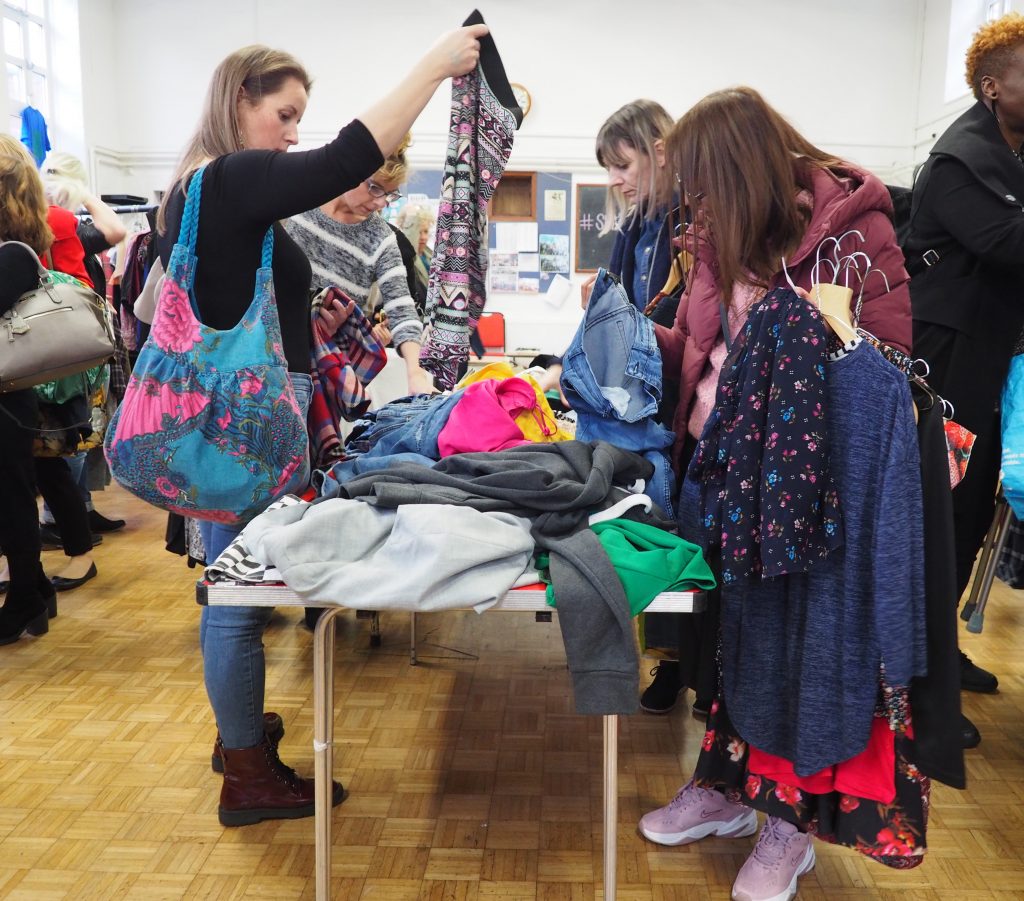
When brands use sustainability as a marketing ploy, rather than to truly tackle environmental issues, that’s called Greenwashing, right?
Exactly. That’s such a big thing. I think I heard recently that BooHoo have just released a sustainable clothing collection, and that’s just obvious greenwashing. So when a brand’s whole business model is about driving down prices, slashing prices with suppliers, and enforcing really strict terms on them. They can’t claim that they give any kind of a damn about the environment or about the workers that are making those clothes. Because of the greater awareness of sustainability among consumers, it has made companies all aware of that, but the way that they’re using it is not actually getting deep down into the really unappealing sorts of issues to tackle, [the ones that] don’t make a good press story. It’s things like making sure that fire escapes in factories are kept clear. I think there’s lots of brands, just doing those kinds of actions that just make a good press story so that they can be seen to be doing something positive.
What do you think of brands like Lucy and Yak, who style themselves as being more sustainable and ethical – are they a step in the right direction?
Yeah, it’s definitely a step in the right direction, and it’s not problem free for them. It’s not easy to run a sustainable brand. It’s just expensive, basically, and difficult, if you’ve not got the same economies of scale and if you’re not willing to exploit people in the same way that major brands might be, then it’s just that much of an uphill struggle, basically, to run a sustainable brand. So many factors, from the materials to the actual sewing of the garments together, to packaging [and] sizing inclusivity, there’s just so much going on. Brands that are trying to run their whole supply chain in a more sustainable way, even if they’re only focusing on one issue at a time, they’re just focusing on just using organic materials, or they’re focusing just on paying everybody who works in supply chain a living wage, that’s a really positive thing, because it’s looking at that whole supply chain, and then thinking how they can genuinely run the whole business differently.
What does a typical Stitched-up workshop look like?
We have a really varied programme of workshops, we have some stuff specifically for young people, we’re doing holiday clubs next month where we’re focusing on up-cycling clothing. We do repair workshops and we have one called wardrobe surgery, which is like a mix of upcycling and repair, you can just bring along a garment and it’s just a short workshop just to have a go at repair. Then we do like more longer term courses, we have a four-week course in garment making, we do find that [for] a lot of people it gets cogs turning when you find out how long it takes to make an item of clothing, and then it starts to bring up questions about the prices of garments in fast fashion shops. We do one called Zero to Hero as part of our skills-building workshops, where it’s about learning to use a sewing machine, then you learn to make a pair of pyjama bottoms in the afternoons. Basically, if you learn from having no experience whatsoever, you can then by the end of the day, make a garment with a sewing machine. I don’t know if I could say what an average one looks like, but what they all have in common is they’re all group workshops, so it’s all about coming together with other people that might have shared interests, probably a shared desire to do something proactive about the way that the fast fashion industry is.
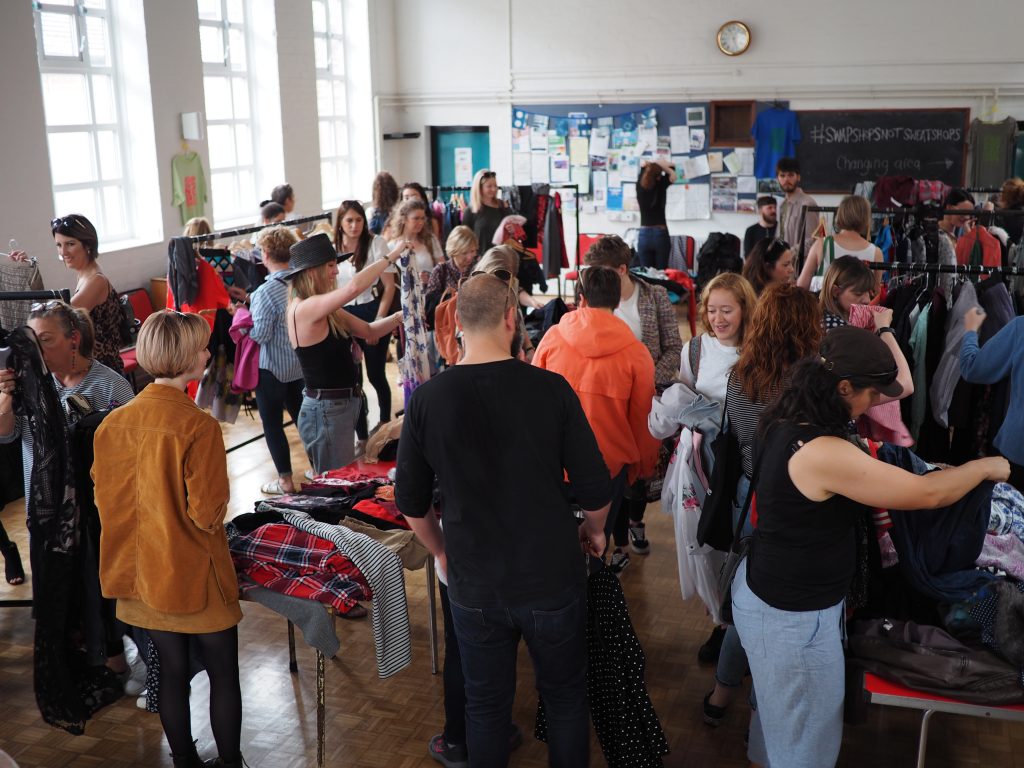
While you’ve been doing these workshops, have you seen people’s attitudes towards repairing and making clothes, and fast fashion change?
Definitely, I think there’s been a real increase in awareness of sustainability issues over the time that we’ve been running Stitched-up, especially in the last maybe four years or so. I feel like maybe social media plays quite a big role in that, so people have access to more information than they’ve ever had before. And, you know, there’s new generations of young people that [are] really passionate about taking action on these issues, which is really amazing to see. It definitely looks like people are really starting to look at issues like overconsumption of clothing, over-production of clothing most importantly. Even in relation to shopping secondhand, people are recognising patterns of consumption even when buying sustainably.
What advice would you give to someone looking to reduce their reliance on fast fashion?
If you are someone who likes shopping, then I would say go to a clothes swap because they’re a really great way to shop secondhand, but also have that shopping experience but without actually taking in any new garments in your wardrobe, which if you’re anything like me is a prime concern. Not everybody likes shopping online, Depop is amazing, eBay is amazing for clothes, so if you prefer an in person experience, then clothes shops are amazing for that, and if you’re someone who’s got the time and the energy to learn how to sew then we always say to everyone, the biggest carbon impact you can have in terms of clothing is just to keep your clothes in use for longer.. The other thing is that washing your clothes less and at lower temperatures also has a significant climate impact. It doesn’t take long to get people started on repairing and sewing and stuff. We do try and offer some workshops which try to lower those barriers, you can just pop along for an hour-and-a-half, and we can show you how to fix something in 10-minutes and then you’ve got a skill for life.
If there was one call skill you advise everyone to learn, what would it be?
Simple hand sewn patching can be really useful for all sorts of different situations, It doesn’t take very long, all you need is a scrap of fabric, a reel of thread and a needle and some scissors to cut your thread, you don’t need a sewing machine. Just simple hand sewn repairs are really, really useful. And it’s surprising how often things happen, like a button falls off, or you get a rip in something. And it definitely doesn’t have to mean the end of it, but for lots of people it is just because they don’t have those basic skills.
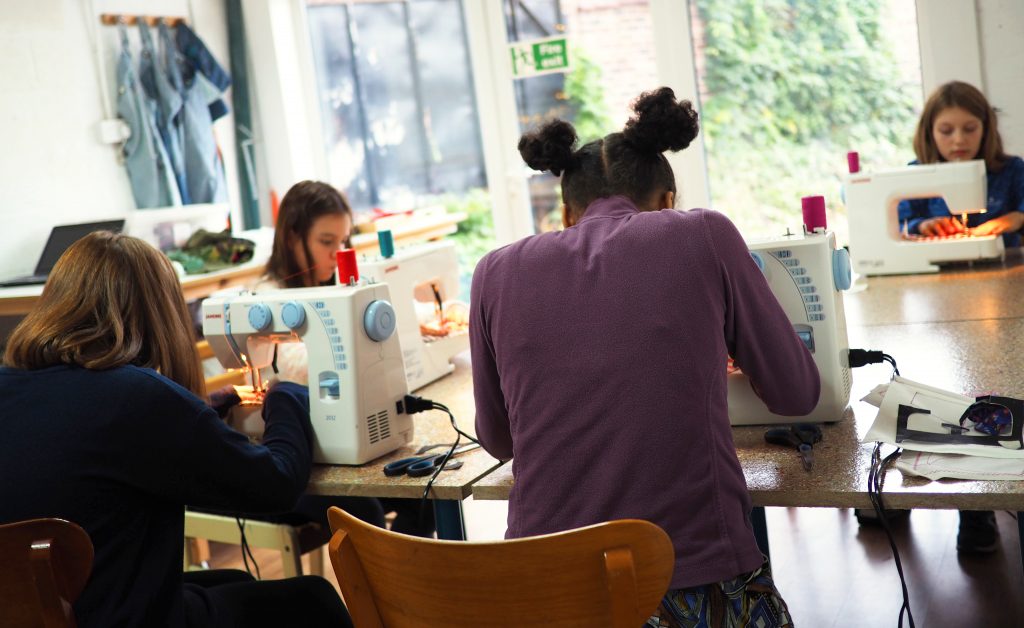
What’s your vision for Stitched-up over the next five to ten years?
And I think what I really am hoping that we’re going to see in the very near future is a focus on [over-production and de-growth] and how we can actually practically move away from such huge production to a model where there’s less clothes made, where we’re buying less, but they’re better quality, and there’s not been any exploitation of people or the environment to get there. We also really need to move towards making companies take responsibility for the clothes that they make after the end of their life. At the moment, our councils are paying to dispose of clothing that’s being churned out by these brands, but there is work happening to try and push the government to make a charge, basically a tax on garments on each garment producer. What’s currently happening is the majority goes to Ghana from the UK. And we’re causing huge environmental problems there, like overwhelming the waste management services, destroying local tailors trades and things like that. And I would also say, just a real increase in hands on alternatives for the average person, for communities to be much more skilled up on practical sewing and mending.
Interview has been edited for length and clarity
Photo credit: Stitched-up
